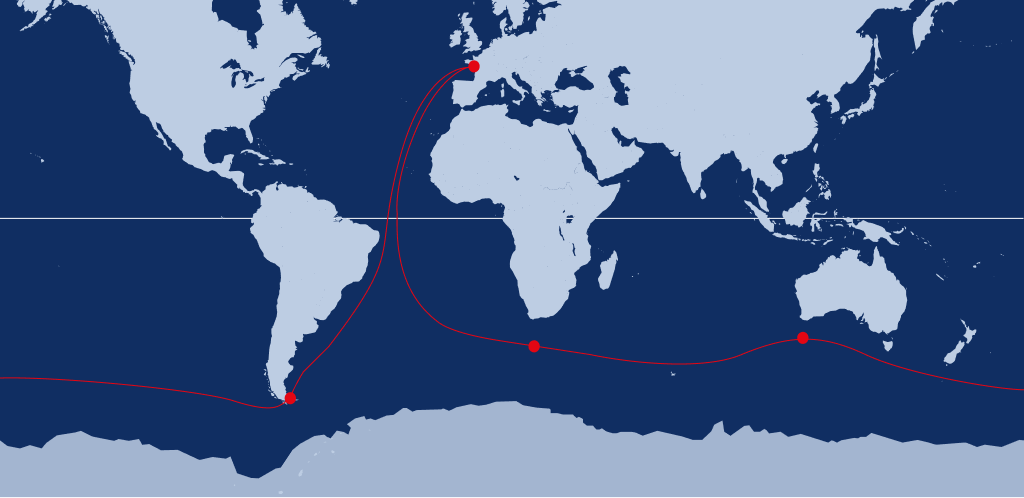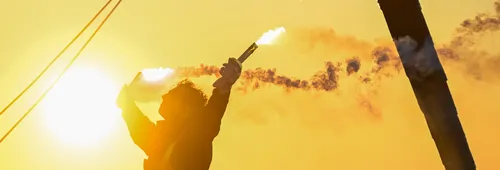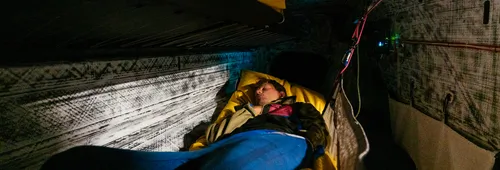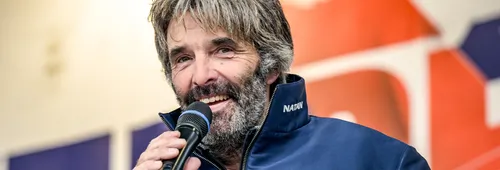In doing so she overcame numerous problems, in particular a clean break of her starboard foil in the Pacific ocean. In doing this the Franco-German skipper achieved her goal of maintaining the positive and combative state of mind that she was aiming for.
Four years ago, Isabelle Joschke had sailed up the Sables d’Olonne channel on the same IMOC, but in a completely different context. Victim of a major keel failure, she had been forced to retire after rounding Cape Horn, before choosing to continue her solo circumnavigation after repairs had been completed.
This time the early part of Isabelle’s race proceeded relatively well, apart from a sail failure in 40 knots of wind while passing Cape Finisterre. The skipper of MACSF then settled into a rhythm, gaining places in the ranking and crossing the equator in 19th place, a position she still held passing the Cape of Good Hope on December 6. She also set a personal 24 hour speed record, covering 458 miles. "I think I'm doing quite well," she remarked at the time.
Isabelle describes the Indian Ocean this year as being "tough" and chose the northern route in the company of Jean Le Cam and Alan Roura. She also held her own against boats with higher speed potential, showing impressive consistency and passed Cape Leeuwin again in 19th place.
December 29 brought a tense moment: on hearing a loud crack Isabelle immediately feared the same keel damage as four years ago. She went out on deck to see that the "starboard foil has snapped clean off". Added to this is an engine failure that makes battery charging problematic, and the mainsail is torn.
"My race will not be the same from now on", she explains, obviously dejected, and worried about the rest of the journey. Finishing, no matter what, becomes the only priority. Before Cape Horn, Isabelle slows to avoid the worst of the storm, dropping to 18th place.
By contrast, the weather worked in her favour in the early part of the south Atlantic, when it slowed the group of competitors in front. With eight boats bunched together less than 150 miles apart, Isabelle decided to try her luck near the Brazilian coast. This option smiled on her and she crossed the equator in 15th place before accelerating in the trade winds, as long as she was on starboard tack and therefore using the undamaged foil.
However, she slowed again in the Azores high pressure system, when the same group of boats came together again. Isabelle then pushed the boat to the full in the very tightly fought closing stages of her race. For a skipper who once had doubts about returning to the Vendée Globe, successfully overcoming the problems encountered and completing a solo non-stop and unassisted circumnavigation is also a victory in itself.









